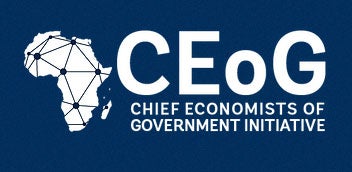 A once-in-century challenge
A once-in-century challenge
The COVID-19 (coronavirus) pandemic has seen governments around the world grappling with unprecedented and uncharted challenges. Leaders across Africa, including in South Africa and Nigeria, sub-Saharan Africa’s largest economies, have needed to make major decisions to navigate a twin public health crisis and economic crisis throughout 2020 and 2021. Many of the choices they faced had no textbook. No one had been here before.
Those tasked with advising presidents faced a similarly daunting task. How do you provide the best possible advice in such conditions? Like the rest of the world, African governments had little precedence to rely on when formulating economic policy options. And the approaches being deployed in Asia and Europe might not be suitable for the specific conditions and constraints they faced at home. And how might the World Bank be able to help?
What was needed was a way of pooling their knowledge while drawing on outside expertise to quickly get insight into what we knew about the pandemic. To provide a place where these advisors could exchange with one another and get feedback on their approaches to the unique challenges that the pandemic was generating.
So, when chief economic advisors to the President’s of South Africa and Nigeria, along with 40 other African countries, needed to pool knowledge and gain critical insights and feedback on their approaches to the pandemic and economic responses, they turned to the Chief Economists of Government (CEoG) network, an initiative of the Africa Office of the Chief Economist at the World Bank. This network comprises chief economic advisors to heads of the executive from more than 40 of the 48 Sub-Saharan African countries.
These chief economic advisors have met every few weeks throughout the pandemic since March 2020, via virtual meetings convened by the World Bank. These meetings have provided a safe space to discuss difficult questions and get peer feedback on the issues of the day they are grappling with.
CEoG: An African network to address Africa’s problems
The Chief Economists of Government initiative aims to promote economic growth and transformation by strengthening knowledge-based policymaking in African countries. It was initiated by the Africa Chief Economists Office, recognizing an absence of support and peer exchange for this special group of individuals; those tasked with advising the President or Prime Minister on critical economic matters.
Not knowing the COVID-19 pandemic was just around the corner, the network was launched in February 2019 with an inaugural event at Oxford University bringing together the network of African chief economic advisors, and connecting them to those who had played this role in the past, both in Africa and from countries such as Malaysia.
Then COVID-19 struck. However, a crisis often comes with an opportunity: as the first African governments started implementing COVID-19 response measures, CEoG started hosting regular peer-learning webinars, offering advisors a space to share their countries’ pandemic response measures and economic recovery plans, discuss and receive feedback on investment incentives or climate mitigation and adaptation strategies, and get together to discuss, formulate and agree on specific inputs to the Abidjan Declaration, calling for IDA donors to support an ambitious IDA20 replenishment – with success! Transparency, trust and flexibility has allowed this demand-driven network to be owned by its members, choosing the topics and requests for outside experts.
CEoG members straddle economies totaling almost two trillion US dollars with the typical economy almost as large as $40 billion and per capita income of almost $2,500. The goal is to have the CEoG network facilitate more rapid economic growth and transformation of its member countries.
Throughout the pandemic and going forward, the CEoG Secretariat continue to organize demand-driven thematic workshops and virtual peer-learning events for the advisors. The advisors will also identify specific challenges where additional support may be useful. For instance, when our network member from the Democratic Republic of Congo (DRC) was tasked with formulating a plan to reduce the dollarization of the economy in DRC, they turned to the CEoG network to help convene other advisors and experts to help share insights that could inform the country’s de-dollarization efforts.
The future
The network now regularly brings together the chief economic advisors from each of almost every country in the Sub-Saharan Africa region. This year the network is launching the CEoG Presidential Fellowship program, to give the most talented African economists the opportunity to work in the highest levels of government across the region.
To support future chief economic advisors, the network is also documenting the experiences of current and former advisors to President, to form a guide to the experiences associated with this unique and challenging job.
We invite you learn more about the CEoG network.



Join the Conversation